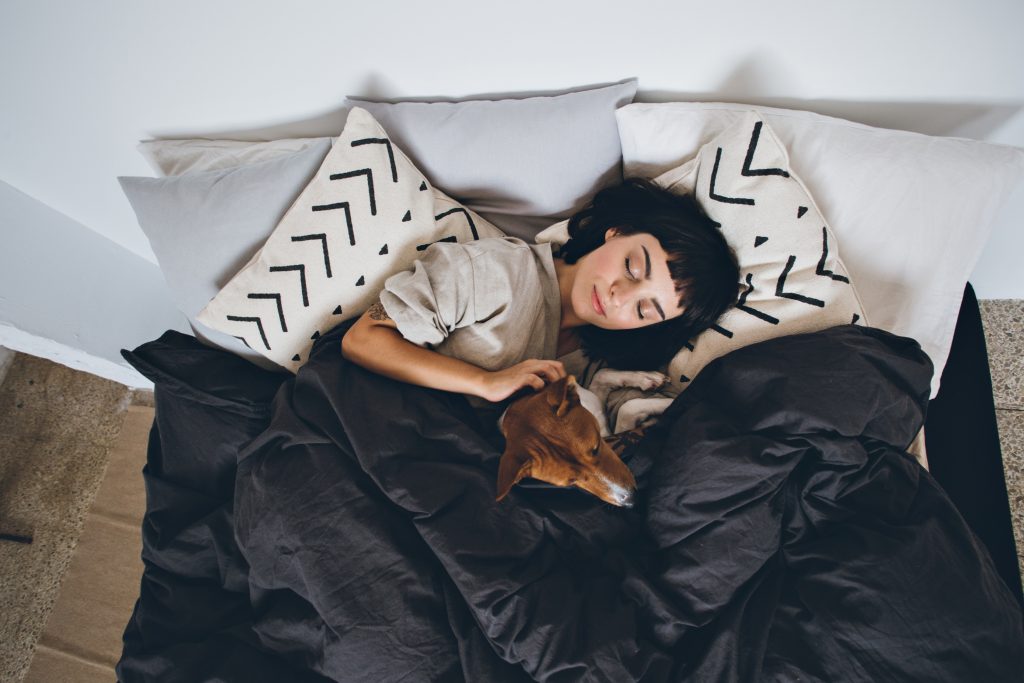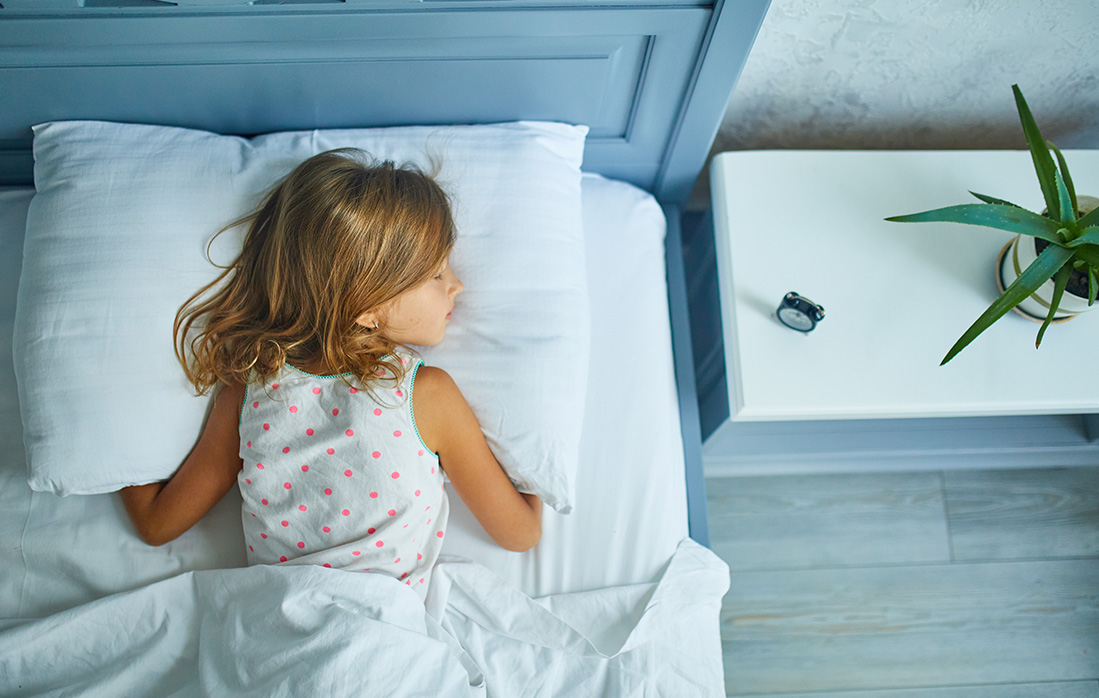
As I close my eyes and start to sink into a deep sleep after a long day, my eyes peel open to the face of my dog, Piper, inches away from mine as she commences her nightly concert of snores, varying in pitch and volume. I let her stay in bed because she’s just too cute. But, her adorable snores wake me up throughout the night, leading me to question, “Do I need a sleep divorce… from my dog?”
Many people deal with a snoring partner, facing regular sleep disturbances as their loved one snoozes away and they lie awake restless. Sometimes, that loved one is a pet.
Roughly 30 to 50 percent of pet owners regularly share a bed with their furry friends. (1) Apparently, the pet co-sleeping dilemma is one that’s experienced by many, as new research looked into the impacts of sleeping with a pet on overall sleep quality.
The study might settle the “cats versus dogs” debate, too, at least when it comes to sleep.
Dog Co-Sleeping Associated with Poorer Sleep Quality in New Study
The study published on March 6, 2024 found an association between pet co-sleeping and poorer sleep quality. Researchers surveyed a nationally representative sample of 1,591 U.S. adults, including 758 pet owners.
Long story short, those that co-slept with pets, specifically dogs, self-reported poorer sleep quality and greater insomnia severity than those that did not. Notably, cat owners did not experience the same negative effects as dog owners. (2)
Study authors wrote, “This finding is also somewhat surprising given that an earlier study comparing the impact of cats and dogs on sleep found that humans perceived co-sleeping with dogs to provide more comfort and security than co-sleeping with cats.” (2)
The study further discusses the sleep impacts of pet co-sleeping, explaining that the difference in impacts of dog co-sleeping could be explained by greater nighttime movement and activity, which can contribute to sleep disturbances (2).
Co-Sleeping With a Pet: Pros and Cons
You might be thinking, “I thought sharing a bed with my dog was good for my sleep?”
You’re not wrong. The study summarized above did mention that it had a some limitations, and acknowledged that other research has connected pet co-sleeping to a few psychological benefits, including feelings of security and comfort.
For example, one referenced study found that dog co-sleepers had fewer sleep disturbances and stronger feelings of comfort and security, while cat co-sleepers had weaker feelings of comfort and security. (3)
Given the mixed research, the answer to the above question might be ambiguous. Frequent nighttime disturbances from your furry friend might mean that it’s time for them to move to the dog bed. Or, you might notice that you feel more relaxed with your pup by your side at night. Either way, listening to your body and prioritizing your own sleep needs will help you make the right decision for you.
For me, playing white noise to drown out the noise of my dog is a good compromise between the dog bed and a symphony of snores.

Wait… Was Jason Kelce Really Asleep During Taylor Swift’s Eras Tour Stop in Miami?!

11 Cyber Monday Deals You Don’t Want to Miss

Here’s Why So Many Kids Love Bamboo Pajamas — and Which Ones They Love the Most

How Bad Is It to Sleep In a Room After Painting? Here’s What Experts Today Are Saying
Sources
- Rowe, Hillary, et al. “The curious incident of the dog in the nighttime: The effects of pet-human co-sleeping and bedsharing on sleep dimensions of children and adolescents.” Sleep Health. 2021. Volume 7, Issue 3, Pages 324-331, ISSN 2352-7218. https://doi.org/10.1016/j.sleh.2021.02.007.
- Chin, Brian N., et al. “Co-sleeping with pets, stress, and sleep in a nationally-representative sample of United States adults.” Sci Rep. 2024. 14, 5577. https://doi.org/10.1038/s41598-024-56055-9
- Hoffman, Christy L. “An Examination of Adult Women’s Sleep Quality and Sleep Routines in Relation to Pet Ownership and Bedsharing.” Anthrozoös. 2018. 31:6, 711-725. DOI: 10.1080/08927936.2018.1529354